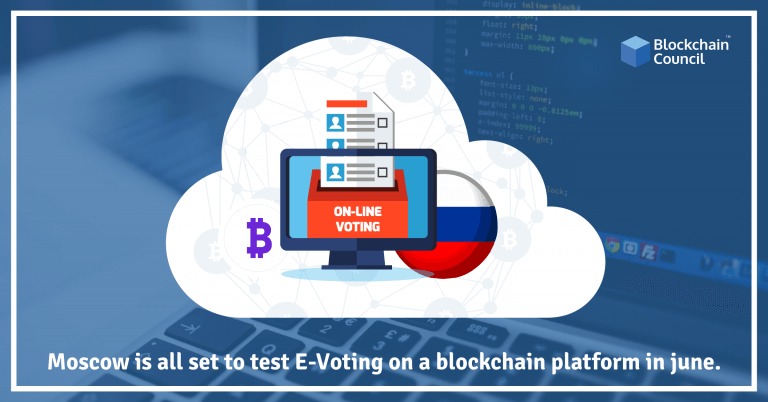
- Toshendra Kumar Sharma
- June 14, 2018
Blockchain has been there in existence since the evolution of Bitcoin. It has revolutionised the way financial transactions take place. However, all we know about Blockchain is from the perspective of the developers or crypto experts. When it comes to common man, then they don’t have much idea about it and how it can influence their life.
The objective of this blog is to bring forth the usefulness of Blockchain in real life. For most of the non-tech people, Blockchain is just a platform for trading in virtual currency. They have no awareness of how comprehensive is this technology and the vast assortment of applications that it holds for us.
Let’s find out how Blockchain is different from other technologies that we are using today and how it will be useful in daily life.
How is Blockchain different from other technologies?
You might be wondering what makes Blockchain different from other technologies that we are using today. To understand this, you must know a bit about Blockchain. It is a digital distributed ledger. Here all the information or transactions are stored in chronological order or in simple words. They are time-stamped. It means that you can easily track and trace any piece of information when you want and that too without spending too much time. Another great feature of Blockchain is that it has all the information scattered in the network; it means there is no central repository of information. This decentralisation feature of Blockchain makes it suitable for various applications.
Here is the list of differentiating factors which makes Blockchain a leading technology:
Immutability– Any information once enters the Blockchain cannot be changed or altered, not even the administrator can modify this information. It gives Blockchain the benefit of being easily auditable.
Accessible– All the nodes in the network can easily access the information
Decentralization– This is the key feature of the Blockchain; it makes information distributed in the network called as nodes.
No third party– Blockchain aids peer-to-peer transactions, so whether you are trading or exchanging money, there is no need for a third party approval. Blockchain itself works as a platform.
How is Blockchain benefiting us in daily life?
For most of us, Blockchain is something which is not our cup of tea because it doesn’t affect us directly. But, the fact of the matter is that Blockchain does influence our daily life. It’s just that the technology is at a nascent stage and is undergoing changes and developments.
So, let’s understand how it happens to be a part of our daily life.
Digital Identity
Digital security is the prime concern of everyone today, primarily because everything has gone on the internet. Being an open space, the World Wide Web is prone to hacking. It is a big problem which the world is facing, but Blockchain could be a probable solution for the same. With the help of this technology, you can easily track and manage the digital identities without worrying about leakage of information. Apart from securing the data, this also cuts down the cost. Since everything is present on one platform which is distributed across the entire network, accessing the information becomes easy for the people in the system.
Blockchain Identity Use Case:
1. Passport
2. Birth certificates
3. Wedding certificates
4. E-residency
5. IDs
Healthcare–
Healthcare is a big industry. Imagine the amount of data that floods in every day. Although the current system is efficient to handle this data, it takes a lot of time to manage this data and extract information. Moreover, extracting a piece of information, for example, the previous health conditions of a particular patient can consume a lot of time. With the help of Blockchain, we can create a universal record repository with a timestamp and a library which will enable easy data extraction across different databases.
Smart Contracts
With Blockchain you would have heard about Smart contracts. They are also getting popular every day. Smart Contracts are legally binding programmable digitsed contracts. Let me explain how it works:
For example, A and B want to exchange some money in future at a specific time; this exchange will happen only one specific condition are met. All this information is programmed and put into the system. Once all the conditions are met the system automatically releases the pay. This information and conditions will be programmed into a smart contract. Once the pre-decided conditions are met, the amount would be released and sent to the party.
Since everything is automated and the system performs the task, it makes the entire process of transaction easy, quick and efficient.
Digital Voting
The most significant barrier to a successful democracy is a transparent voting process. Using Blockchain, the voter can take that his/her vote is successfully transmitted while being anonymous with the others. Well, if you think that this is just on paper, then you would be surprised to know that in 2014, in Denmark; Liberal Alliance became the first organisation to use Blockchain for voting.
Conclusion–
Everything looks very promising when it comes to Blockchain, and its application and the potential of this technology in the future is unraveling. The sudden surge in Blockchain in last two years shows that it is underpinning for the creation of a futuristic technology which is more efficient and robust. With this pace, Blockchain is defiantly going to bring in some significant changes and innovations in business functioning.





































































 Guides
Guides News
News Blockchain
Blockchain Cryptocurrency
& Digital Assets
Cryptocurrency
& Digital Assets Web3
Web3 Metaverse & NFTs
Metaverse & NFTs
